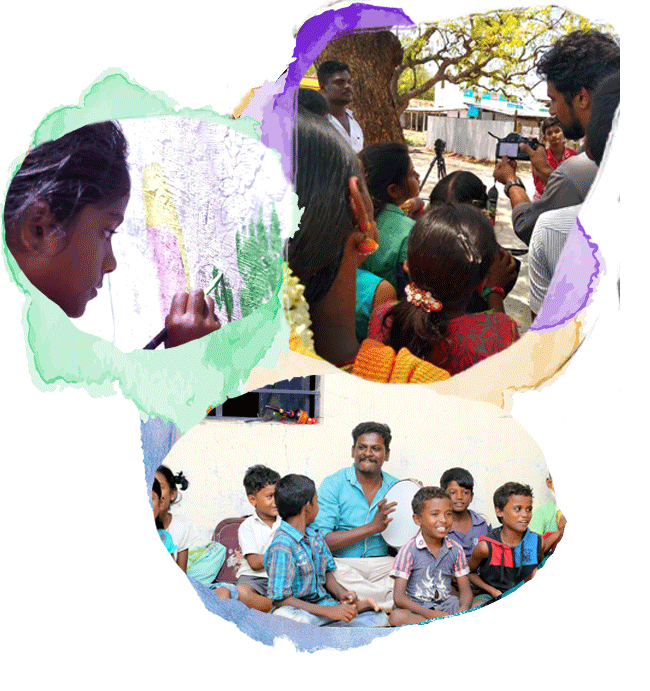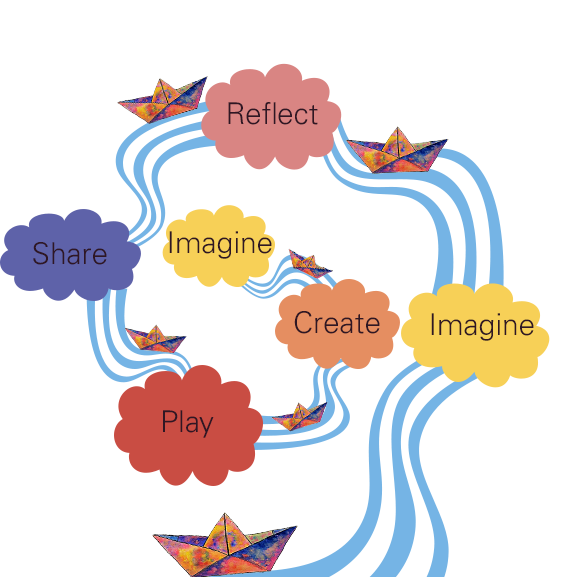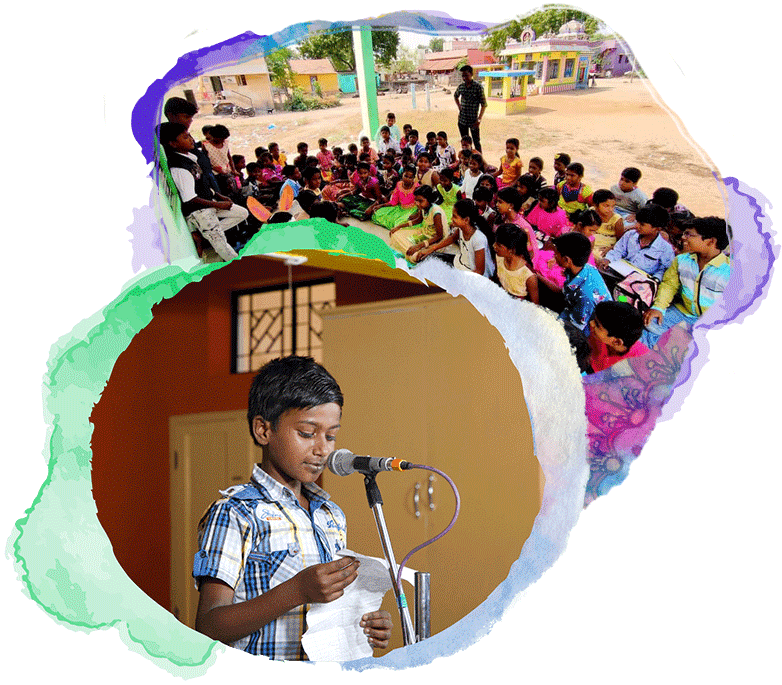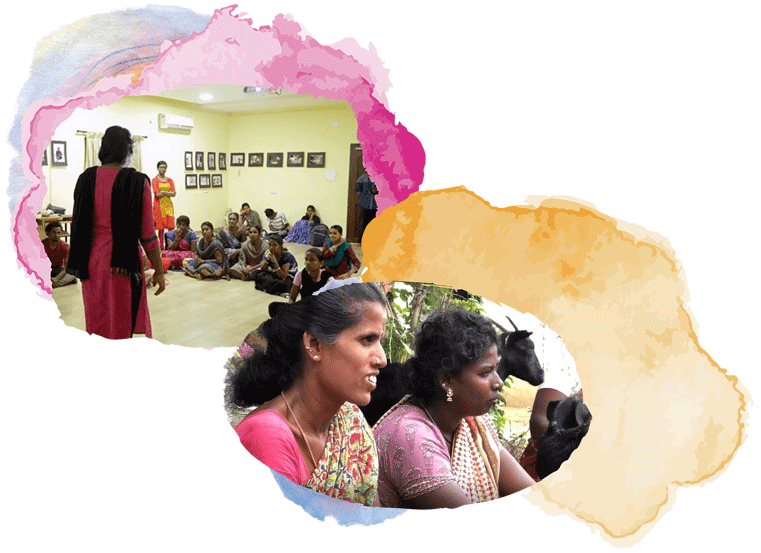Programmes
Programmes
Creative Learning Spaces for Children
Inspiring and enabling children to change their world.
At the core of ‘how we work’ are child-centred creative learning spaces (called Children’s Hubs) that equip young people with the skills, experience and personal qualities needed for creative problem solving and leading change in their communities.
Complex problem solving, critical thinking and creativity are essential life-long learning skills for every child growing up in a rapidly changing and unpredictable world. They are particularly important for the young people that Paper Boat works with. Children who live their lives at the margins are all too often invisible and unheard. Our playful and inclusive learning spaces help them to harness their creativity and be seen, heard, and valued. Within hubs children come together to lead the way to a better tomorrow. They are inspired and enabled to be the leaders of great change in their communities and beyond.

Inside the hubs
Paper Boat Children’s Hubs use a two-tiered approach to learning blending play and imagination with deep knowledge about child-led advocacy and change.

Firstly, we train community facilitators so that they can support young people develop essential learning skills that are foundational for creative problem solving – such as curiosity, imagination, open mindedness and courage (self-belief). In our Children’s Hubs young people participate in a range of activities that help to nurture these skills – art, sculpture, music, drama, storytelling, filmmaking and photography are all used to stimulate creativity and imagination. Many young people, particularly those on the margins, do not have an opportunity to access these kind of learning experiences in formal school settings.
Secondly, we develop innovative learning resources for use within the hubs that enable young people to engage in project-based problem-solving activities. Children build on this by harnessing their emerging creative skills to collaborate on small scale projects that help them to lead change in their communities.
The theory behind the approach
Paper Boat believes that learning is collaborative and calls for critical curiosity. Our approach is inspired by MIT Media Lab’s Learning Creative Learning Programme which highlights a Creative Learning Spiral that invites children to:
- IMAGINE: what they want to do
- CREATE: a project based on their ideas
- PLAY: with their creations
- SHARE: their ideas and creations with others
- REFLECT: on their ideas and creations with others…all of which leads them to…
- IMAGINE: new ideas and new projects
If you would like to find out more about what others are saying, here are some useful links:

Our Whole Community Approach
Children’s Hubs are community owned, child-centric spaces where young people can access a safe and inclusive environment for creative learning. They are most effective when they are part of a wider network of informal structures and forums for dialogue that enable a deeper understanding of children’s rights and agency across the whole community. This helps to cement collective responsibility for protecting and exercising those rights…enabling children to have their voices heard where they need to be (not just in the hubs).
Furthermore, these are community owned spaces that are sustainable and deeply rooted, often occupying existing spaces offered by residents who value the opportunity to co-create and transform the existing environment into a playful and creative learning space for children.
Stronger child-centric communities and championing local delivery
Children's hubs run by our key partner CEDAR in Tamil Nadu are accompanied by wraparound structures to engage and encourage the entire community including:
Child Rights Monitoring Committees are formed of a cross-section of the local community who receive training and support so the whole community has a deeper understanding of children’s rights and can champion pathways for them to realise their full potential. These committees become powerful community advocates to drive change.
Children’s Collectives help to connect children from different hubs, villages and urban deprived areas to discuss the issues that matter the most to them and how to contribute to their community and/or engage decision makers such as Panchayats (village councils). This empowers young people as they creatively and reflectively engage with their immediate physical and social environment, beginning a journey that will inspire and enable children to change their world.

Stronger relationships with community schools that result in community support for the hubs as teachers and parents see the benefits that creative learning spaces bring for the children, supplementing and extending the educational opportunities that they get through formal learning. Headteachers have been so impressed by the approaches used in the hubs that they have invited our partners to work with teachers so that these can be replicated for all pupils in the local schools.
Investing in community facilitation and locally owned spaces by…inviting leadership within hubs from respected individuals from that community who work well with the children. Deeper connections with the community develop because we and our partners build the capacity of local facilitators through training and skills development, listen to local voices, and respond to their needs; and in return they trust the facilitators, see tangible benefits from the hubs, and value the inputs and expertise brought by our delivery partners.

